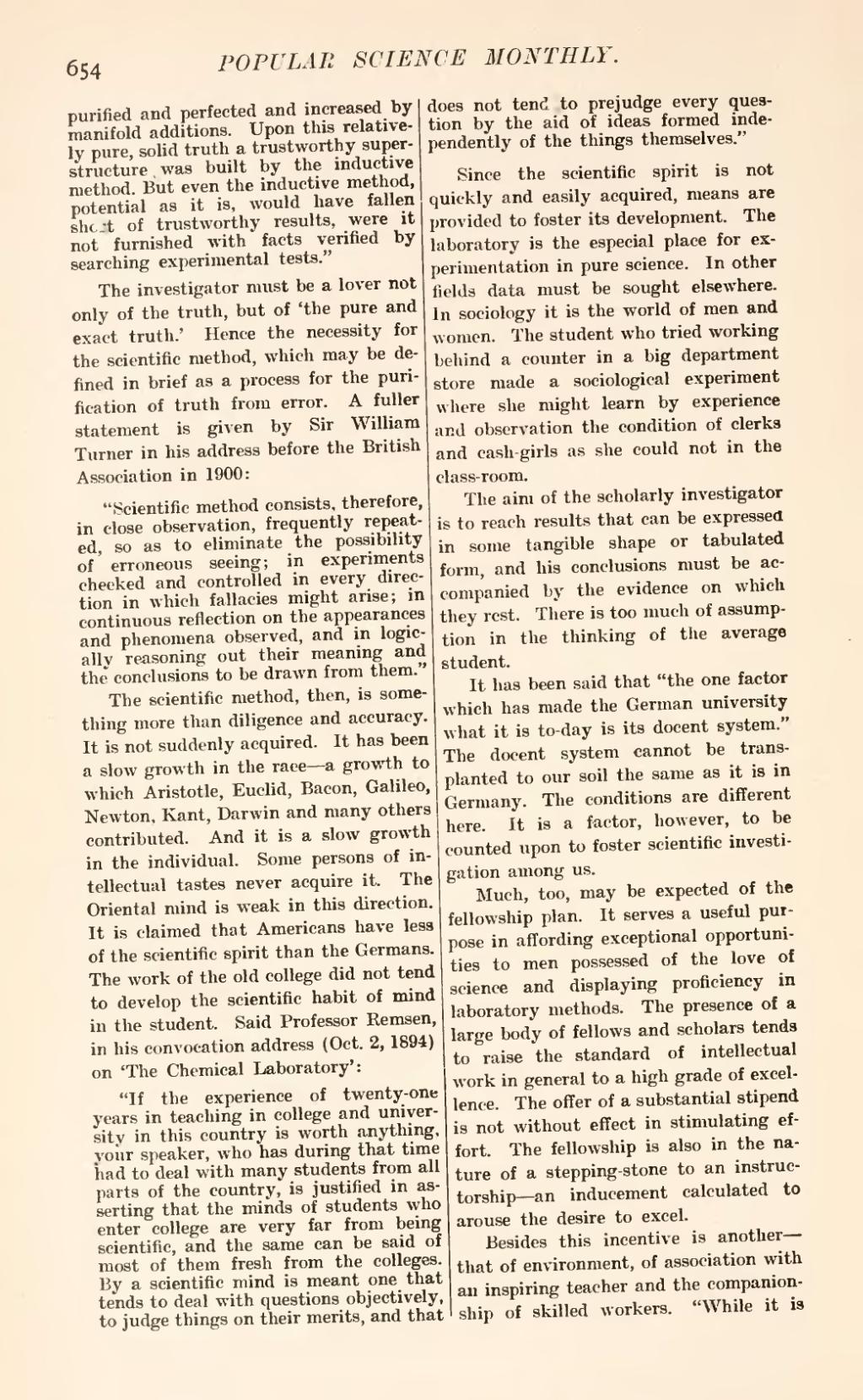The investigator must be a lover not only of the truth, but of 'the pure and exact truth.' Hence the necessity for the scientific method, which may be defined in brief as a process for the purification of truth from error. A fuller statement is given by Sir William Turner in his address before the British Association in 1900:
The scientific method, then, is something more than diligence and accuracy. It is not suddenly acquired. It has been a slow growth in the race—a growth to which Aristotle, Euclid, Bacon, Galileo, Newton, Kant, Darwin and many others contributed. And it is a slow growth in the individual. Some persons of intellectual tastes never acquire it. The Oriental mind is weak in this direction. It is claimed that Americans have less of the scientific spirit than the Germans. The work of the old college did not tend to develop the scientific habit of mind in the student. Said Professor Remsen, in his convocation address (Oct. 2, 1894) on 'The Chemical Laboratory':
Since the scientific spirit is not quickly and easily acquired, means are provided to foster its development. The laboratory is the especial place for experimentation in pure science. In other fields data must be sought elsewhere. In sociology it is the world of men and women. The student who tried working behind a counter in a big department store made a sociological experiment where she might learn by experience and observation the condition of clerks and cash-girls as she could not in the class-room.
The aim of the scholarly investigator is to reach results that can be expressed in some tangible shape or tabulated form, and his conclusions must be accompanied by the evidence on which they rest. There is too much of assumption in the thinking of the average student.
It has been said that "the one factor which has made the German university what it is to-day is its docent system." The docent system cannot be transplanted to our soil the same as it is in Germany. The conditions are different here. It is a factor, however, to be counted upon to foster scientific investigation among us.
Much, too, may be expected of the fellowship plan. It serves a useful purpose in affording exceptional opportunities to men possessed of the love of science and displaying proficiency in laboratory methods. The presence of a large body of fellows and scholars tends to raise the standard of intellectual work in general to a high grade of excellence. The offer of a substantial stipend is not without effect in stimulating effort. The fellowship is also in the nature of a stepping-stone to an instructorship—an inducement calculated to arouse the desire to excel.
Besides this incentive is another—that of environment, of association with an inspiring teacher and the companionship of skilled workers. "While it is

